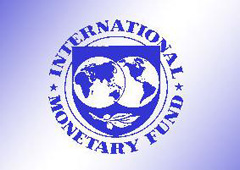Analytics, Economics, Financial Services, Lithuania
International Internet Magazine. Baltic States news & analytics
Sunday, 21.12.2025, 02:16
IMF: Lithuania doesn’t need financial aid
 Print version
Print version |
|---|
"We don't see any need for Lithuania to appeal for aid from the IMF," Catriona Purfield, the head of an International Monetary Fund delegation to Vilnius, told reporters of ELTA/AFP after meeting Prime Minister Andrius Kubilius.
Kubilius underscored Purfield's remarks.
There had been growing speculation that Lithuania would join the ranks of ex-communist countries which have asked for international help to try to tackle their snowballing economic problems.
Kubilius' Conservative-led coalition has repeatedly insisted that its current belt-tightening drive means that Lithuania has no need to follow neighbouring Latvia down the path to a bailout from the IMF, European Union and other lenders.
Lithuania is expected to fall heavily into recession next year, with output set to fall by 4.8% compared with the level in 2008, according to a finance ministry forecast.
Kubilius' government formally took office last week after having beaten the centre-left Social Democrats in October's general election, and has set about introducing measures that it says are meant to ward off a financial crisis Lithuania, a country of 3.4 million people, won independence from the crumbling Soviet bloc in 1991 and joined the European Union in 2004.
Along with fellow ex-Soviet EU newcomers Estonia and Latvia, it has enjoyed a reputation as an economic "tiger".
Lithuania's growth has been powered by exports, as well as robust domestic demand which has in turn been fuelled by rising wages, loans and money sent home by the 300,000 Lithuanians who have left to work abroad, mostly in Britain and Ireland, since EU expansion.
The economy grew 8.9% in 2007, after 7.8% in 2006. But once-solid domestic demand has tailed off in the face of high inflation, tighter domestic credit rules and the global economic crisis which has dented exports.
Lithuania's economy is expected to grow 3.5% this year before contracting 4.8% in 2009, 0.2% in 2010 and rebounding with 4.5%, according to the latest finance ministry forecasts.
Latvia and Estonia are already grappling with recession, although Estonia hasn't asked for a bailout.
Among Kubilius' measures are a 21-% single-rate "flat tax" – personal income tax is currently 24% – rather than the 20% he had earlier pledged.
Also on the horizon are pay cuts of 12-15% for lawmakers and civil servants – except teachers – and reductions in social security payments.
It has decided to raise overall VAT from 18 to 19%, and will end the favourable five-% VAT rate on medicine and home heating in July and December 2009 respectively.
Lithuanian officials have said the goal is to save state coffers 5.3 billion litas (1.55 billion euros, 1.96 billion dollars) in 2009, and ward off a yawning deficit.
Under the plan, the 2009 deficit is likely to be equivalent to 2.1% of gross domestic product, according to the government.
Without action, the deficit could have ballooned to 5.76% of GDP, exceeding an EU limit, Finance Minister Algirdas Semeta said.








 «The Baltic Course» Is Sold and Stays in Business!
«The Baltic Course» Is Sold and Stays in Business!

